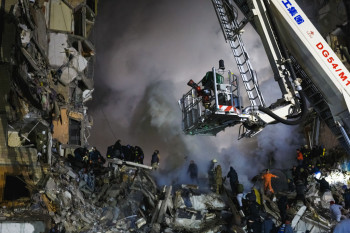ISW: Kremlin likely preparing 'decisive action' in next 6 months to 'regain initiative'
The Kremlin is likely looking to "conduct a decisive action in the next six months" to regain the upper hand in Ukraine after a series of failures and successful Ukrainian counteroffensives, the Institute for the Study of War reported in its latest update.
Russia has failed to achieve most of its major objectives in Ukraine since the start of its full-scale invasion in February of last year. Russian forces failed to capture Kyiv in the early days of the invasion, as well as the entirety of Luhansk and Donetsk oblasts. Ukrainian forces have liberated more than 50% of the territory occupied by Russia since February, including Kherson, the only regional capital Russia managed to take.
Russia's campaign of targeting Ukraine's critical infrastructure in winter in an effort to demoralize Ukrainians has also been a failure and in many ways has generated more support for Ukraine's cause.
Nonetheless, Russian dictator Vladimir Putin and Kremlin officials have reiterated that they have not abandoned their maximalist goals. According to the ISW, while Putin has not changed his objectives, "there is emerging evidence that he is changing fundamental aspects of Russia’s approach to the war by undertaking several new lines of effort."
The ISW has observed several Russian efforts that point to further aggression in Ukraine, including plans to expand Russia's military by forming new divisions and increasing the conscription age.
The Kremlin's decision to appoint General Valeriy Gerasimov, formerly the Chief of Russia's General Staff, to commander of Russia's Joint Group of Forces in Ukraine also signals that Putin is re-centralizing control of the war effort, the ISW said.
The D.C.-based think tank noted, however, that "Russia's effort to prepare for a likely intended decisive strategic action in 2023 is not mutually exclusive with the Kremlin’s efforts to set conditions for a protracted war."










